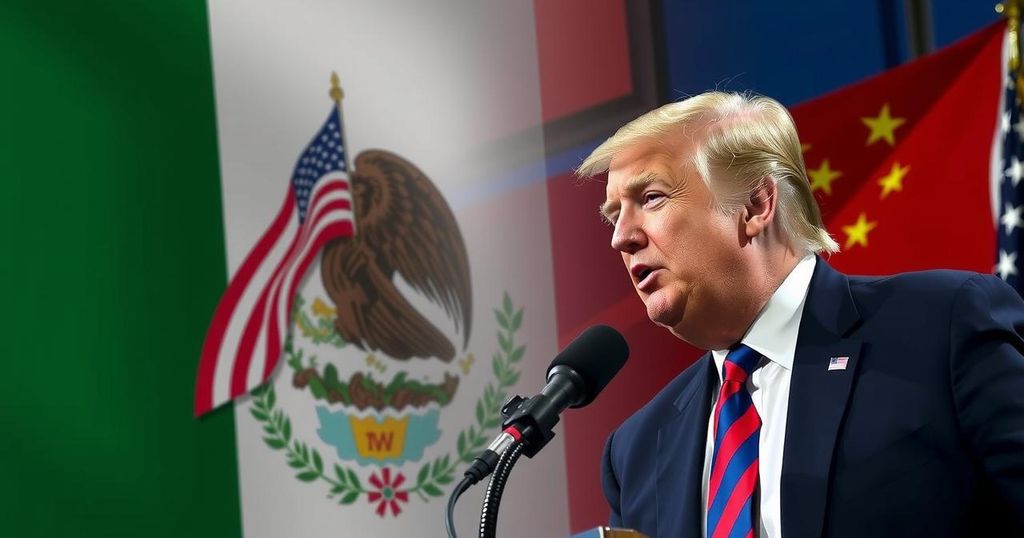economics
AMERICA, ASIA, BE, CANADA, CHINA, CNN, DONALD TRUMP, ECONOMICS, GOVERNMENT SPENDING, MEXICO, NATIONAL SECURITY, NORTH AMERICA, PETERSON INSTITUTE FOR INTERNATIONAL ECONOMICS, PHILIPPINES, SCOTT BESSENT, SENATE, TREASURY, TRUMP, TRUMP ADMINISTRATION, TRUTH SOCIAL, UNITED STATES, US, US-CHINA RELATIONS, WALL STREET
Isaac Bennett
0 Comments
Trump Proposes Major Tariff Increases on Imports from Mexico, Canada, and China
President-elect Donald Trump plans to implement significant tariffs on goods from Mexico, Canada, and China upon taking office, citing illegal immigration and drug influx as primary motivations. A 25% tariff on imports from Mexico and Canada and a 10% increase on Chinese goods are being proposed. These tariffs could impose financial burdens on American consumers, reminiscent of Trump’s previous term that faced criticism for similar trade policies.
On Monday, President-elect Donald Trump announced his intention to impose significant tariff increases on goods imported from Mexico, Canada, and China, effective from the first day of his administration. This initiative aims to address concerns over illegal immigration and the influx of drugs, particularly Fentanyl, into the United States. Trump stated that a 25% tariff would be levied on all products from Mexico and Canada, which he believes will remain until those countries take action to stop what he describes as an invasion. Furthermore, a 10% increase on Chinese imports will be enforced until that nation curbs the flow of illegal drugs into the U.S.
Donald Trump has long championed tariffs as a strategic tool to bolster American manufacturing and generate additional tax revenue, particularly during his previous presidency. Although tariffs are ostensibly paid by foreign governments, the reality is that American consumers ultimately bear the cost, leading to inflationary pressures. Economic analysts, including those from the Peterson Institute for International Economics, have projected that Trump’s proposed tariffs could result in an annual expense of more than $2,600 for the average U.S. household. Additionally, tariffs frequently incite retaliatory measures from affected countries, resulting in trade conflicts that can undermine the intended benefits for domestic producers.
In conclusion, President-elect Trump’s planned tariff increases signal a continuation of aggressive trade policies aimed at addressing illegal immigration and drug smuggling. While his proposals may resonate with his base, there are concerns regarding the long-term implications for American consumers and the potential for trade wars. The exact impact of these tariffs will depend significantly on their implementation and the international response from affected nations.
Original Source: edition.cnn.com




Post Comment